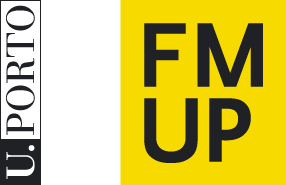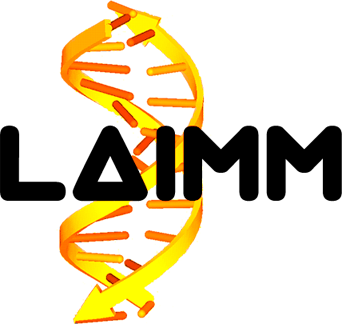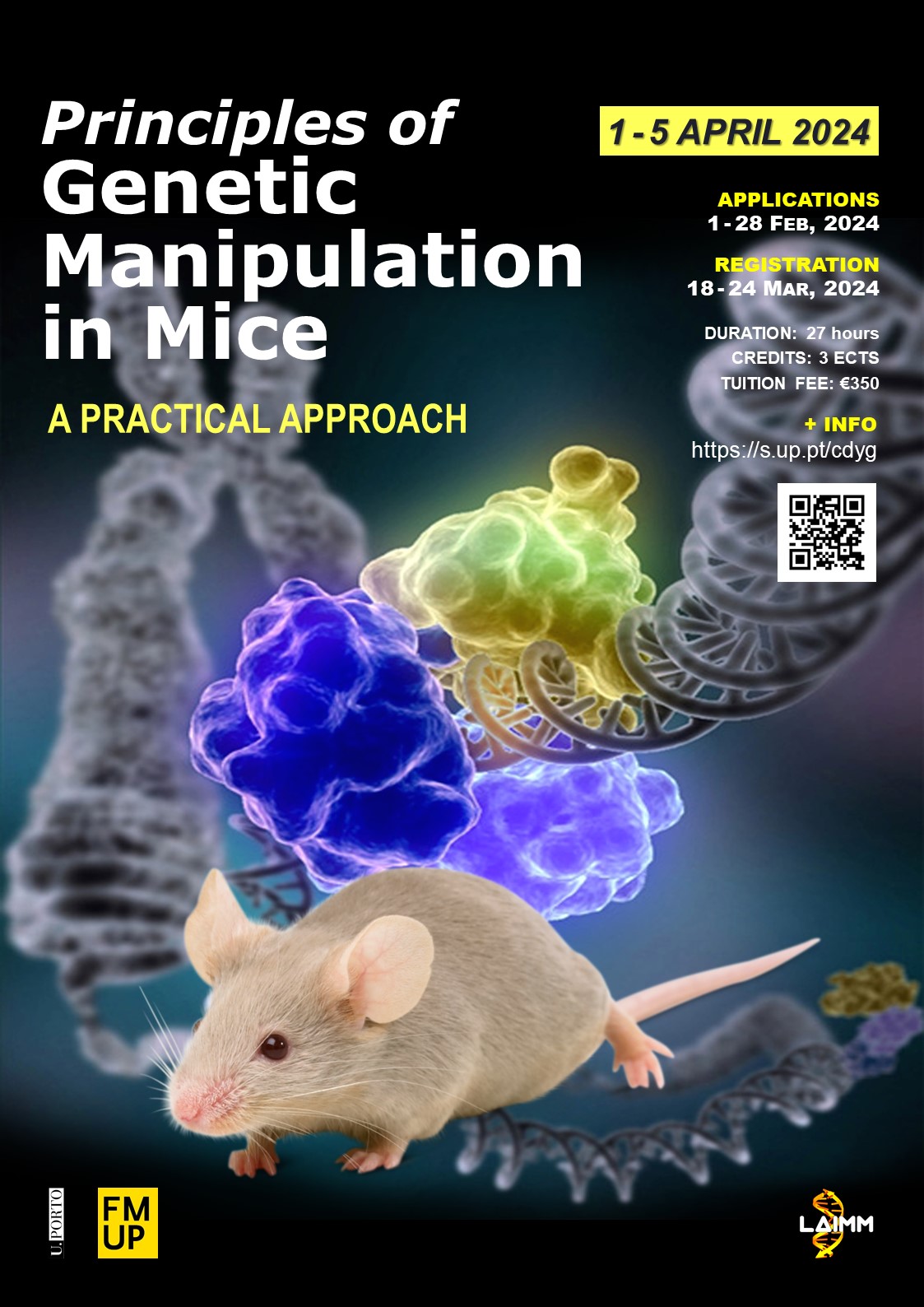Principles of Genetic Manipulation in Mice - a practical approach, 1st edition
Article Index
1 - 5 April 2024
Welcome,
This laboratory-based training course will cover the fundamental principles and techniques of genetic manipulation of mouse embryos and ES cells for a broad range of applications, namely for creating mutant and transgenic models for biomedical research.
Applications
Closed
---
Admission
- Applications: 1 - 28 February
- Registration: 18 - 24 March
Details
Principles of Genetic Manipulation in Mice - a practical approach, 1st edition
Date: 1 - 5 April 2024
This laboratory-based training course will cover the fundamental principles and techniques of genetic manipulation of mouse embryos and ES cells for a broad range of applications, namely for creating mutant and transgenic models for biomedical research.
By end of the course the participants should:
- Have a good understanding of concepts and practices in the field of genetic manipulation in mice for purposes of basic and translational research
- Have acquired practical skills in specific experimental steps involved in the generation of genetically altered animal models
- Be familiar with current genome editing techniques
- Be able to apply the acquired knowledge in the design of genetic manipulation experiments
Programmatic content
- Principles of genetic manipulation in mice
- Overview of mouse development
- Transgenesis and mutagenesis
- Targeted manipulation of embryonic stem (ES) cells
- Recovery and culture of preimplantation-stage mouse embryos
- Micromanipulation of mouse zygotes: pronuclear injection
- Micromanipulation of mouse morulae: ES cell injection
- Implantation: oviduct and uterine transfer
- Conditional mutagenesis
- Novel approaches for genome editing: programmable nucleases
- Mechanisms of gene editing
- CRISPR/Cas system
- Experimental design of genome alterations
- Detection and analysis of mouse genome alterations
Teaching methodology
All topics will be covered in once-daily morning lectures followed by practical sessions, which will entail the demonstration of the experimental techniques followed by hands-on execution by the participants. The learning process will develop through direct contact with the experimental protocols and hands-on work.
Evaluation type and criteria
The participants will be evaluated continuously throughout the practical sessions and by the production of an original experimental project on a related topic
Coordinator
Miguel Luz Soares, Faculty of Medicine of the University of Porto
Faculty
Miguel Luz Soares, PhD
Carlos Daniel Vasconcelos, MSc (Faculty of Sciences of the Charles University, Prague, Czechia)
Ana Filipa Dias, MSc (Institute of Biomedical Sciences Abel Salazar, University of Porto)
Target audience
Undergraduates, graduate students, researchers and faculty in the areas of Biological or Medical Sciences.
Admission criteria
Attendance of higher education or university training in Biological and Medical Sciences
Dates
1 - 5 April 2024
Schedule
Monday to Friday - 09h00 to 18h00
Admission
Applications / registration will be conducted online only, on the website of the Faculty of Medicine of Porto.
Online application
1 - 28 February 2024
Online registration
18 - 24 March 2024
Number of participants
12 (max) / 6 (min).
Ranking criteria
Curricular analysis, order of application. Eligibility according to the admission criteria.
Credits
3 ECTS
Tuition fee
350 €
Language
English
Information for international participants
Tuition fees
Tuition fees cover tuition and all necessary course-related materials. Meals and accommodation are not included.
Accommodation
The Course does not provide accommodation. However, foreign participants looking for affordable lodging are encouraged to submit an application to the University Accommodation Services (Social Service of the University of Porto - SASUP). SASUP provide accommodation in 6 Residence Halls across Porto, offering single or shared bedrooms with private bath. The Paranhos Residence Hall is particularly convenient: it's located about 10 minutes walk from the venue.
A lodging application form should be filled, signed and sent directly to SASUP. The Course is unable to mediate accommodation applications.
VISA requirements
Non-European Union nationals will need a Visa to enter the EU Schengen Area / Portugal to attend the course. Please note that the process of Visa obtention can be lengthy. To avoid disappointment and disruption of plans, you should deal with the matter promptly. Upon successful application an invitation letter may be provided by request.
Sponsors
To be announced


 PT
PT  EN
EN 
